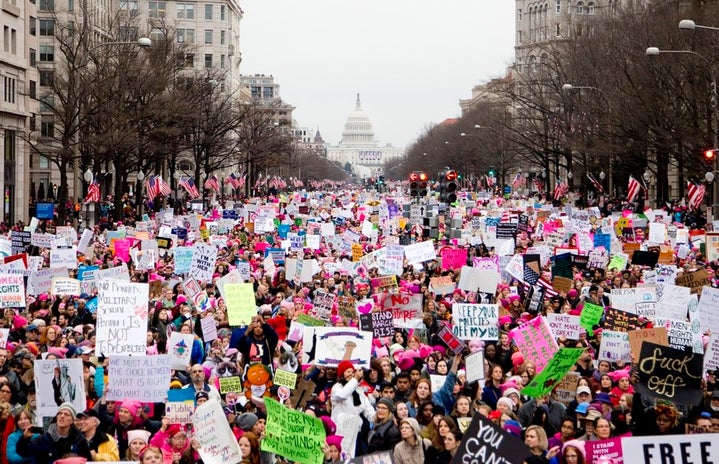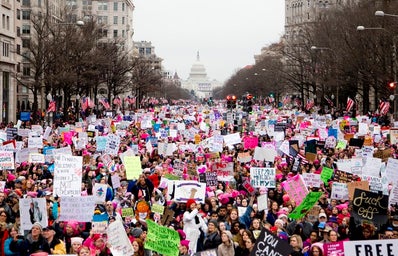Feminism has never been one unified movement or concept. Since the beginning of women fighting for liberation, there’s always been a distinct difference in the types of feminists that we see. We love to applaud the Suffrage Movement, and it does deserve praise—to a certain extent. When the 19th Amendment passed, that was a huge victory for middle-class white women. However, we like to obscure history and blindly believe that all women gained the right to vote in 1920. In reality, women of color had to wait until decades later. What people don’t recognize is how the Suffrage Movement within the first wave of feminism and the feminist movements that followed have completely failed women of color, specifically Black and Indigenous women.
The fact of the matter is that the Suffrage Movement could not have succeeded if it hadn’t prioritized the rights of white women above all people of color, and to this day, we still see the remnants of this mindset. While mainstream feminism has always been an embodiment of white feminism, which assumed the needs of white women were the needs of all women, the roots of feminism that are actually intersectional are totally separate in principles and beliefs. We see these roots in Black feminism, which was around as early as slavery. Black feminism addresses the fact that black women are positioned within structures of power in fundamentally different and more oppressive ways than white women—an important notion that can be applied for other women of color and marginalized women as well.
However, too often, the popular and widely accepted feminism that we see today and throughout history can only be described as white feminism, in which the struggles of women are defined solely by the struggles of white women without even acknowledging the different forms of oppression that non-white women or other marginalized women have to face. Mainstream feminism has eradicated the radical nature and origins of Black feminism while narrowing the interpretation of women’s oppression to just encompass white, straight, cis, able-bodied, middle-class women. We have forgotten the ways in which Black feminism incorporated the intersectionality of various identities, advocated not only for women, but for all people of color, and detested the evils of capitalism.
As my journey with feminism grows, I’ve come to realize the flaws in feminists and feminism as a whole. There has always been a fundamental divide in feminist beliefs that we still see to this day through the failures and depravity of white feminism. Since the genesis of feminism, white women have had a different definition of feminism that strays from what we believe it to be, and unfortunately, that has taken over the comprehensive mindset of our mainstream feminism. White women had different beliefs than women of color regarding voting and all rights and freedoms-at-large. Those beliefs have always been detrimental to all other marginalized groups across races, genders, sexualities, religions, classes, and creeds.
I truly want to identify with the core message of feminism—the advocacy of the rights of all women. But in reality, at its roots, there’s been an intrinsic dichotomy, where the narrow, exclusive version of white feminism has evolved into our accepted version. I can no longer holistically accept the feminist identity when the widespread values of feminism, at its origin, are inherently corrupt. We still see the same discriminatory corruption in our feminism today when feminists fail to address the rates at which Black and Indigenous women are assaulted. We see it when feminists complained about Greta Gerwig not winning an Oscar, despite the first Indigenous person, Taika Waititi, winning one. We see it when feminists prioritize and assume the immediate needs of white women are the needs of all women, without acknowledging the serious differences that women of multiple intersections must face.
I wholeheartedly wish I could agree with feminism, but our established version of feminism does not fulfill the values of true equality for all, and I see feminism failing too many marginalized women to achieve success for a small portion of far more privileged women. And until we can redefine what feminism means to extend all bounds of inclusivity, I cannot and will not call myself a feminist anymore.
Want to keep up with HCBU? Make sure to like us on Facebook, follow us on Instagram, check out our Pinterest board, and read our latest Tweets!



